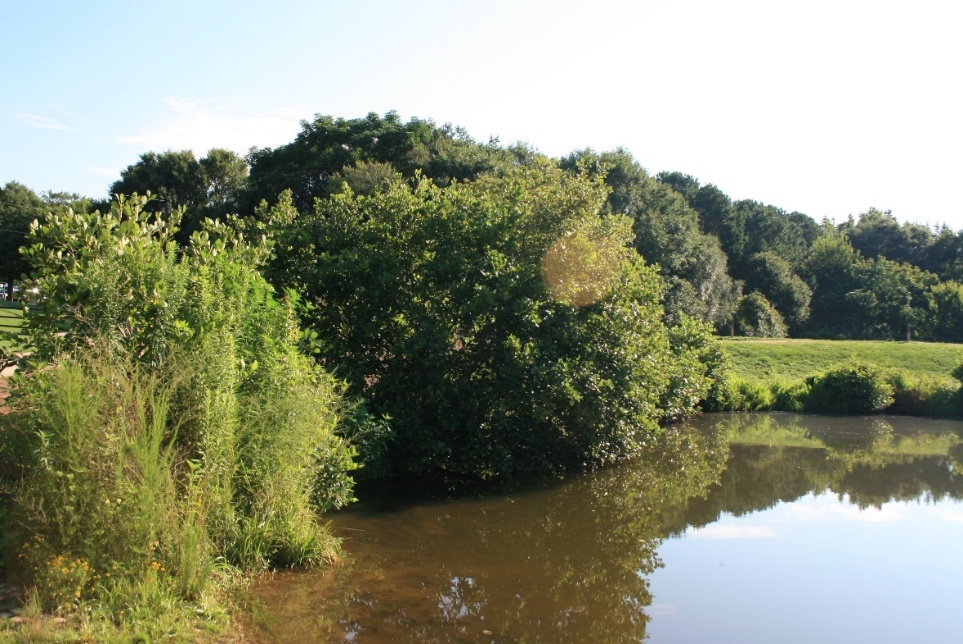By Larry B. Dendy
University of
Georgia
Athens, Ga. –An internationally known soil scientist who holds
the number-two position in the University of Maryland College of
Agriculture and Natural Resources and the Maryland Agricultural
Experiment Station has been chosen to be dean and director of
the University of Georgia College of Agricultural and
Environmental Sciences.
Jay Scott Angle will take the UGA post Aug. 15 pending approval
by the University System of Georgia Board of Regents. His
appointment was announced today by Arnett C. Mace Jr., UGA’s
senior vice president for academic affairs and provost.
Angle will fill the position left vacant when Gale A. Buchanan
stepped down as dean and director last Dec. 31 and retired from
UGA on April 30. Josef Broder has served as interim dean and
director since Jan. 1.
Angle is interim executive associate dean and director of the
Maryland Agricultural Experiment Station, the Maryland
Cooperative Extension Service and the University of Maryland
College of Agriculture and Natural Resources.
Experienced
He oversees day-to-day operations, long-term planning and
financial resources for the experiment station and extension
service, and works closely with the college dean on college
administrative matters.
A widely published researcher in the field of soil microbiology
and biochemistry, he is an authority on phytoremediation, the
use of sewage sludge to spur crop growth, and the risks of
genetically engineered organisms in agriculture.
He has served as acting executive director of the Northeast
Research Association, which promotes regional cooperation in
agricultural research, and has also been chair of both the
national and Northeast Regional Organizations of Experiment
Station Directors.
UGA President Michael F. Adams said Angle “brings a 21st century
view of agricultural and environmental sciences that will help
project our already-strong college into the upper echelon in the
country.
“I believe he will bring an increased emphasis on research, food
processing and environmental concerns while maintaining UGA’s
historic commitment to extension outreach and Georgia’s all-
important agriculture industry,” Adams said.
Mace added that Angle’s “distinguished record as a faculty
member in teaching, research and cooperative extension, and his
distinguished record as an administrator for visionary
education, research and cooperative extension programs, will
enable him to provide leadership to further enhance the
excellence of the College of Agricultural and Environmental
Sciences. I look forward to working with Scott to advance
programs of the college.”
The CAES, founded in 1859, is the second-oldest of UGA’s 15
schools and colleges.
The college offers more than 20 areas of study through 11
departments, and operates three agricultural experiment
stations, four extension educational centers and the Rural
Development Center in Tifton. The Cooperative Extension Service,
which has agents in 157 of Georgia’s 159 counties and operates
the 4-H program, is also part of the college.
“The College of Agricultural and Environmental Sciences is one
of the prestigious programs in the U.S. and one that has
remained true to its land grant mission,” said Angle. “I
consider it an honor to be selected as dean and director of such
an outstanding institution. I look forward to working with the
faculty, staff and students, and all citizens of the state of
Georgia, as we move the college forward.”
Lead scientist, administrator
Angle earned his bachelor’s degree in agronomy and master’s in
soil microbiology at the University of Maryland and has spent
his entire professional career there except for three years when
he worked on his doctorate at the University of Missouri.
He joined the agronomy faculty in the College of Agriculture and
Natural Resources in 1981. In 1994 he became the associate
director of the Agricultural Experiment Station and associate
dean of the college, and in 2003 became interim executive
associate dean for the experiment station and Maryland
Cooperative Extension.
Competitive funding for faculty research has more than doubled
since he assumed administrative duties.
He helped the college get new buildings and facilities on and
off campus. He established the nation’s first inner-city
facility for agricultural and forestry research and extension in
Baltimore City.
Angle has been a leader or member of research teams that have
received several million dollars in grants. He is author or co-
author of some 300 scientific papers, reports, book chapters and
other publications.
Angle has been a Fulbright Scholar and is a fellow of the
American Society of Agronomy and the Soil Science Society of
America. He received the agronomy society’s environmental
research award in 1998 and the education award in 2003. He also
received the University of Maryland Distinguished Teacher-
Scholar Award in 2003.
(Larry Dendy is the assistant to the associate vice president
for public affairs of the University of Georgia.)




